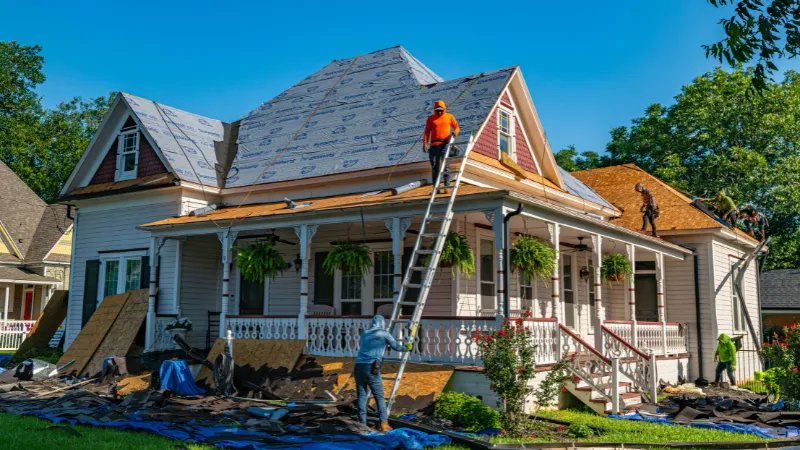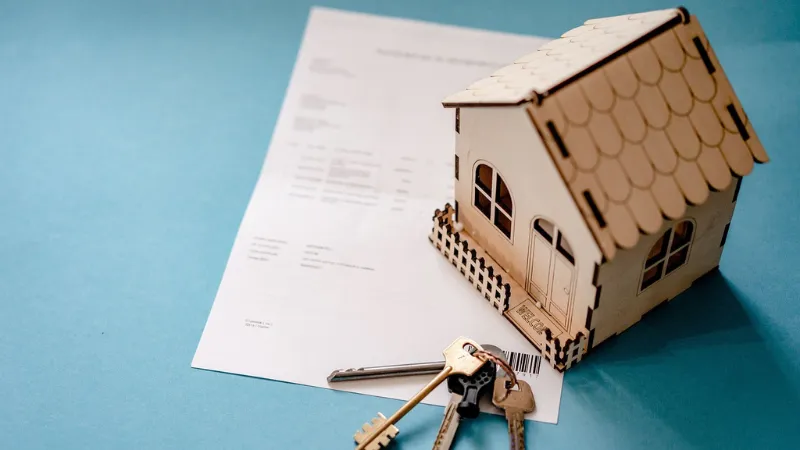
Every entrepreneur loves to talk about winning — the sold-out launch, the big deal, the perfect market timing. But success rarely starts with a win. It usually starts with something breaking, falling apart, or going completely wrong.
In real estate, that’s almost a guarantee. Markets crash, contractors quit, budgets explode, and surprise problems lurk behind every wall. But that’s also where the best lessons come from. Just ask Christopher Mickey, who’s flipped over 500 homes in 17 years. His story isn’t about luck or perfect timing — it’s about learning how to turn every setback into a strategy.
The Reality of Flipping Homes
Flipping homes sounds glamorous — buy low, renovate, sell high, repeat. But the reality looks more like endless spreadsheets, unexpected bills, and 12-hour days covered in dust.
According to ATTOM Data Solutions, only 24% of home flips in the U.S. in 2024 made more than a 10% profit margin. That means three out of four barely broke even or lost money after repairs and fees.
Mickey learned that early. “Our first few flips were disasters,” he said. “We bought a house that looked fine outside, but the foundation was cracked. Every dollar we made from the last project went straight into fixing that one.”
Instead of quitting, he treated every mistake like a business class he couldn’t skip. “It was expensive tuition,” he laughs, “but I learned faster that way.”
Lesson 1: Don’t Rush the Buy
Most new investors get burned on the purchase, not the sale. The deal looks good on paper — nice area, quick turnaround — but hidden costs ruin it later.
Mickey says the biggest trap is falling in love with a house before running the numbers. “I’ve seen people get emotional over a property, like it’s their dream home. That’s a red flag. If you’re flipping, you can’t get attached.”
He’s right. A Bankrate study found that renovation overruns add an average of 20% to total project costs. That means your “cheap deal” can turn into a loss before you even hang the drywall.
The fix: slow down. Don’t chase deals — inspect them. Check the plumbing, electrical, and roof before signing. If the seller’s rushing, walk away. There’s always another house.
Lesson 2: Build a Team You Can Trust
No one flips 500 homes alone. You need a reliable team — contractors, electricians, inspectors, realtors, and lenders who actually do what they say.
But reliable people are rare. Mickey jokes, “I’ve fired more contractors than I can count. Not because they were bad — because they didn’t show up.”
That frustration eventually sparked a new business. “When we couldn’t find dependable HVAC contractors, I got licensed and started my own company,” he said. That company became Airheads HVAC, built on the same principle he wished others followed: show up and do the job right.
The takeaway: reliability is the real competitive edge. People who deliver on promises always win in the long run.
Lesson 3: Expect the Unexpected (and Budget for It)
Every property hides surprises. A simple kitchen remodel turns into a full plumbing replacement. A quick paint job reveals mould behind the walls.
Mickey learned to assume something will go wrong — and to budget for it. “If you think a project costs $50,000, plan for $60,000. It’s never the thing you expect that breaks you — it’s the one you didn’t see coming.”
Data backs that up. The National Association of Home Builders reports that the average unexpected cost overrun for residential renovation projects is 15% to 25%.
That’s why seasoned flippers keep contingency cash ready. It’s not pessimism — it’s insurance for progress.
Lesson 4: Turn Failures into Systems
The best entrepreneurs don’t avoid mistakes. They turn them into repeatable systems.
After dozens of chaotic projects, Mickey started documenting everything — every vendor, every timeline, every cost breakdown. “We built a checklist that covered everything from inspection to cleanup. It saved us from repeating dumb mistakes.”
Once he created a process, the chaos faded. His flips ran smoother, crews stayed accountable, and profits grew.
If you’re scaling any business — not just real estate — this matters. Systems turn experience into structure. And structure is what separates pros from amateurs.
Lesson 5: Stay Calm When It All Goes Wrong
When the market crashed in 2008, many flippers went bankrupt. Mickey didn’t. “We had a few bad years, but we stayed lean. We didn’t panic and we didn’t overextend.”
That mindset — patience over panic — is why he’s still around today. The key was staying small enough to survive. “People who grew too fast couldn’t adjust. We stayed steady.”
Markets always shift, whether it’s housing, tech, or retail. If you plan for ups and downs, you won’t need to rebuild every few years.
The Strategy: Flip Less, Learn More
Flipping 500 homes sounds impressive, but Mickey says he learned the most from the first 10. “Those early houses were rough, but they forced me to build discipline. Now, every decision I make comes from those mistakes.”
That’s the ultimate shift — from chasing fast wins to building smart systems. Setbacks aren’t failures; they’re blueprints.
Here’s how to turn your own mistakes into strategy:
1. Record Every Error
Keep a “failure log.” Write down what went wrong, why it happened, and what it cost. Review it monthly. Patterns will appear fast.
2. Ask Better Questions
Instead of asking “Why did this happen to me?” ask “What system failed?” That mindset moves you from frustration to improvement.
3. Train Your Future Self
Turn every fix into a template. Whether it’s a project workflow, a budget tracker, or a new hire checklist — capture it. Don’t rely on memory.
4. Stay in the Game
Most people quit right before the lessons start paying off. Stick around long enough to benefit from what you’ve learned.
The Hidden Value of Setbacks
Setbacks reveal what matters. They show you who you can trust, what processes hold up, and how much grit you really have.
A Forbes survey found that 92% of entrepreneurs say their biggest growth came directly after major failure. That’s not coincidence — that’s feedback.
As Mickey puts it: “Every house we messed up made us sharper. Every bad deal taught us what not to do again. That’s how you build a career that lasts.”
Final Thoughts
Flipping homes is a crash course in resilience. It teaches patience, problem-solving, and the art of staying calm under pressure.
Success doesn’t come from avoiding problems — it comes from managing them better each time.
If you can turn setbacks into systems, you won’t just flip houses. You’ll flip your mindset — from reacting to building, from guessing to planning.
That’s how you grow stronger in any industry. Because in business, the only real failure is quitting before the lesson hits.


 Follow us
Follow us Follow us
Follow us














